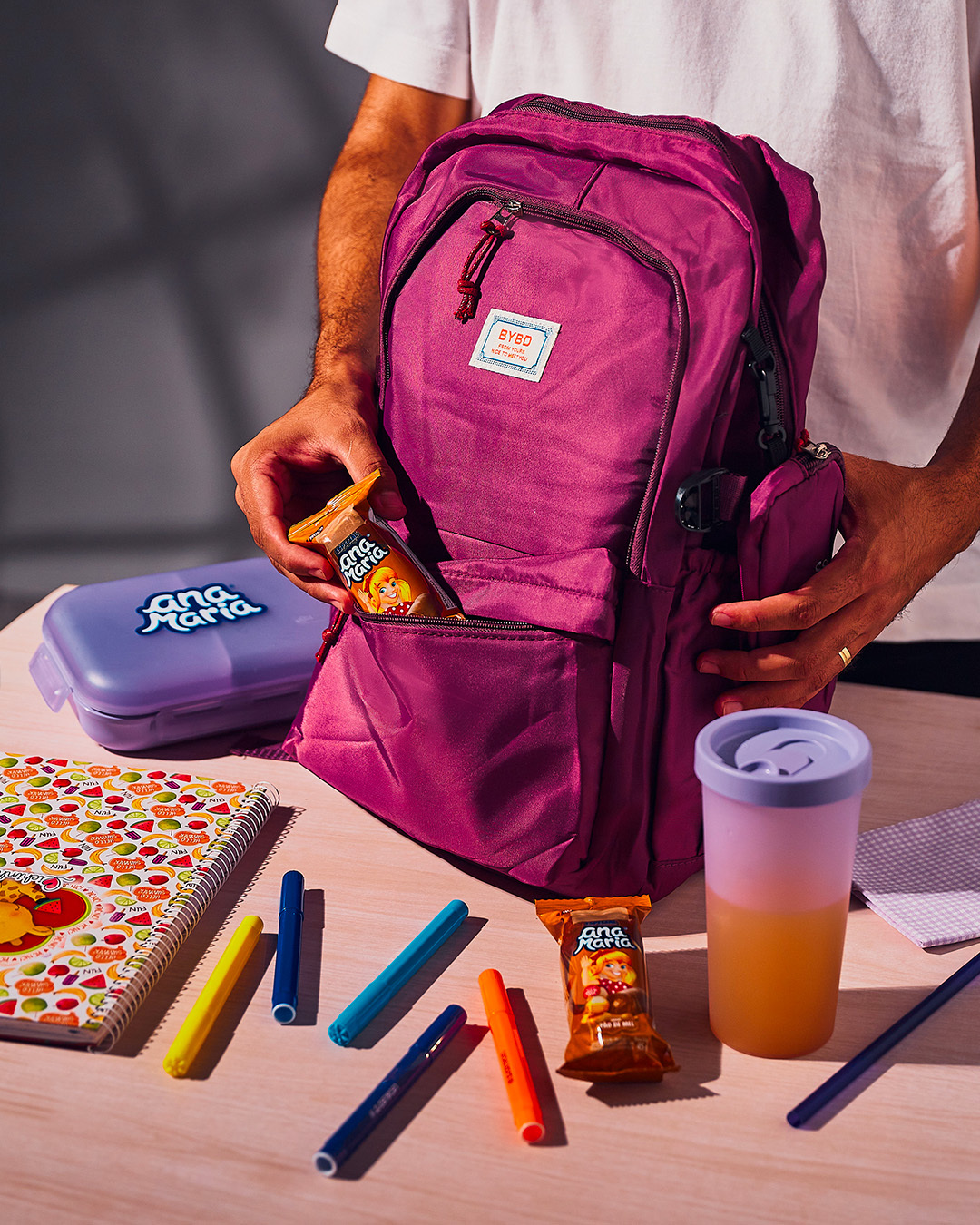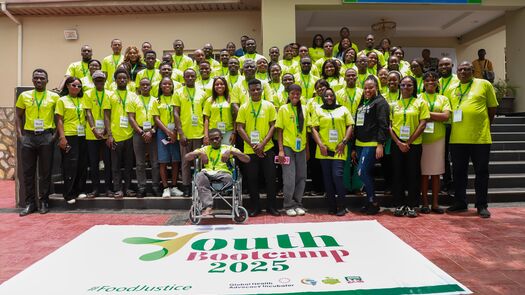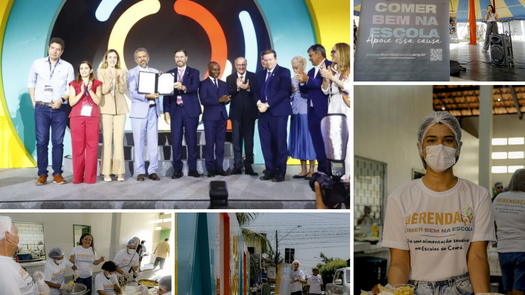November 25, 2025

Administrative case seeks to hold social media influencers and Meta responsible in addition to ultra-processed product producer
The Brazilian Institute for Consumer’s Defense (Idec), a partner of the Global Health Advocacy Incubator (GHAI), has filed a legal complaint against Bimbo Brazil, seven social media influencers and Meta for their roles in targeting children for advertising of ultra-processed cake products. The complaint alleges that the Bimbo cake brand, Ana Maria, employed social media influencers to promote their ultra-processed product (UPP) on Instagram (owned by Meta) using child-directed messages. These ads were part of two separate campaigns, “The Flavor of Being a Child” and “Back to School.” Each campaign targeted children during the 2024 and 2025 back-to-school seasons with messages connecting their products with the school environment.
Specifically, the campaigns used child-friendly allures like animated characters, playful language and school settings to attract children. They also used misleading health claims to imply their UPP high in fat and sugar were sources of vitamins and minerals. In addition, some of the packaging listed ingredients like vanilla and honey, which were not present in the actual product. The social media influencers hired by Bimbo directly contradicted the Brazilian Dietary Guidelines that recommend that children not consume UPP by suggesting these pre-packaged cakes be included in school lunch boxes.
In Brazil, children are protected against misleading and abusive advertising through a set of legal provisions that, for example, prohibit the use of child-centered images and language to promote products to them. These protections are grounded in both the constitutional principle of the best interest of the child and national consumer law, which considers advertising to be abusive when it takes advantage of children’s lack of judgement and experience. Additionally, specific local regulations limit children's exposure to advertising of UPP in school environments, such as Rio de Janeiro’s law to combat childhood obesity enacted in 2023 with support from another GHAI Brazilian partner, Desiderata Institute. These laws and regulations are important because they protect children, who, due to their stage of cognitive development, may not fully recognize the intent of ads to sell a product or distinguish persuasive messages from purely informational content. International health organizations like the World Health Organization (WHO) find the pervasive exposure of unhealthy food marketing to children to be a major risk factor for childhood obesity.

The complaint seeks a formal investigation by Senacon (National Consumer Secretariat) and Procon Carioca (a municipal agency in Rio de Janeiro focused on consumer education, guidance, protection and advocacy) of these practices. Idec is asking that Bimbo do Brasil (for deceptive marketing of Ana Maria products), Meta (for allowing the content on Instagram) and the influencers (for promoting these misleading messages) be held jointly liable for engaging in these practices. It also asks for the removal of problematic content and adjustments to packaging and advertisements. In the complaint, Idec argues that these practices violate the Consumer Defense Code, the Child and Adolescent Statute and the CONANDA Resolution 163/2014, which regulates child-targeted advertising. It also references an investigation that demonstrates that the 14 Ana Maria products qualify as UPP.
This action is significant because it calls out the digital platform and influencers for their roles in amplifying these targeted and abusive ads while also holding corporations accountable for their marketing practices, especially when they are engaging in deceptive and unethical behavior to target children. It advances accountability for online marketing practices, which present unique regulatory challenges given the dynamic and personalized nature of digital environments, where children and their data are increasingly exposed and targeted without clear legal safeguards.
“As a consumer defense organization, we remain committed to protecting the rights of consumers and children against commercial interests focused on increasing their profits by marketing their unhealthy products at all costs,” said Christian Tárik Printes, Legal Manager, Idec. “We are particularly attuned to the added reach that digital platforms and influencers give to misleading and abusive ads, heightening their impact and effects on children and public health.”
Since the complaint was filed, Procon Carioca ordered the immediate suspension of the Ana Maria advertising campaigns targeting children. It also required Bimbo to refrain from offering gifts or using marketing strategies directed at children. Bimbo must also submit contracts and proof of payment to digital influencers involved in the campaigns to evaluate potential administrative sanctions. The Senacon has still not responded to the complaint.



